|
“Jesus allows himself to be found by those who seek him, but to find him we need to get up and go.” -Pope Francis I remember getting up in the middle of the night years ago to try and glimpse a rare, hybrid, solar eclipse. My husband and I camped out at the Lincoln Memorial in the wee hours of the night with blankets and hot chocolate to wait for a rising sun that would be covered by the moon. Rich pink and orange hues danced across the sky, basking the surrounding monuments. Though there were clouds that day, we knew something mysterious and magical was happening above us. We were willing to sacrifice some sleep and wait in the cold just to catch a glimpse of that star. What did the magi see when they looked up in the sky over two thousand years ago? It was enough not only to make them camp out in wonder, but to set out in haste. Their journey required provisions, logistics, time, and great effort. But something in the sky beckoned them. I imagine it was similar to what Peter, Andrew, James and John saw in the face of Christ calling them on the beach – something so extraordinary and captivating that it called them out of their day-to-day routines to begin a new journey. Both the journey of the magi and that of the first apostles had the same end: Jesus Christ. These journeys show that an encounter with Jesus is life-changing. It sets us in motion: the journey of the magi, the life of discipleship and evangelization. This past Sunday, the Christmas season continued with the celebration of the Feast of the Epiphany. The Gospel reading recounted the journey and visitation of the magi to the Christ-child. As the Catechism of the Catholic Church states, “The Epiphany is the manifestation of Jesus as Messiah of Israel, Son of God and Savior of the world. the great feast of Epiphany celebrates the adoration of Jesus by the wise men (magi) from the East, together with his baptism in the Jordan and the wedding feast at Cana in Galilee.” The birth of Christ is the first outward manifestation of the Messiah. Jesus, whose name means “God saves,” is the revelation of God’s plan of redemption. After years of prophecy and expectation, longing and promise, God comes in the midst of his people in the most intimate way possible: as one of them. This Incarnation is awe-inspiring. So awe-inspiring, in fact, that it even draws strangers. The Messiah foretold was long-awaited by the Chosen People of God—the Israelites. And yet, how many do we see at the birth of our Lord? The Visitation of the Magi foretells the inclusion of the entire world in God’s plan of salvation. He has come not only to redeem Jews, but Gentiles—peoples of every land and nation. As Paul wrote in Sunday’s second reading, “the Gentiles are coheirs, members of the same body, and copartners in the promise in Christ Jesus through the gospel.” What can we learn from the magi? In his homily on the Feast of the Epiphany last year, Pope Francis boiled it down to 3 things:
Let us imitate the magi in our lives of discipleship. They were not complacent, but so observant that they were able to recognize God’s sign: the star. “The Magi were not content with just getting by, with keeping afloat,” Pope Francis said last year. “They understood that to truly live, we need a lofty goal and we need to keep looking up.” They were vigilant, ready to go when the time came. And their hearts were receptive, disposed to the signs of the times. From there, they set out on a journey which would lead them to Christ himself. This journey required effort, planning, and sacrifice. And finally, they came bearing costly gifts: gold, frankincense, and myrrh. They met the generosity of God by reciprocating generosity. Pope Francis continued, “To give freely, for the Lord’s sake, without expecting anything in return: this is the sure sign that we have found Jesus.” As we reflect on the significance of the Feast of the Epiphany, let us look to the example of the magi in our lives of discipleship. Let us look up beyond the distractions of the world in order to see God’s star. Let us take the risk of setting out on our journey closer to Christ with joy. And let us give generously to a world which needs the generous love and mercy of the Christ-child. Question for Reflection: What are some things in our life that might distract us from seeing God in the everyday? **This blog was originally published on January 8, 2019** **This photo is from: https://www.crossroadsinitiative.com/media/articles/epiphany-of-the-heart/**
0 Comments
“Jesus allows himself to be found by those who seek him, but to find him we need to get up and go.” -Pope Francis I remember getting up in the middle of the night years ago to try and glimpse a rare, hybrid, solar eclipse. My husband and I camped out at the Lincoln Memorial in the wee hours of the night with blankets and hot chocolate to wait for a rising sun that would be covered by the moon. Rich pink and orange hues danced across the sky, basking the surrounding monuments. Though there were clouds that day, we knew something mysterious and magical was happening above us. We were willing to sacrifice some sleep and wait in the cold just to catch a glimpse of that star. What did the magi see when they looked up in the sky over two thousand years ago? It was enough not only to make them camp out in wonder, but to set out in haste. Their journey required provisions, logistics, time, and great effort. But something in the sky beckoned them. I imagine it was similar to what Peter, Andrew, James and John saw in the face of Christ calling them on the beach – something so extraordinary and captivating that it called them out of their day-to-day routines to begin a new journey. Both the journey of the magi and that of the first apostles had the same end: Jesus Christ. These journeys show that an encounter with Jesus is life-changing. It sets us in motion: the journey of the magi, the life of discipleship and evangelization. This past Sunday, the Christmas season continued with the celebration of the Feast of the Epiphany. The Gospel reading recounted the journey and visitation of the magi to the Christ-child. As the Catechism of the Catholic Church states, “The Epiphany is the manifestation of Jesus as Messiah of Israel, Son of God and Savior of the world. the great feast of Epiphany celebrates the adoration of Jesus by the wise men (magi) from the East, together with his baptism in the Jordan and the wedding feast at Cana in Galilee.” The birth of Christ is the first outward manifestation of the Messiah. Jesus, whose name means “God saves,” is the revelation of God’s plan of redemption. After years of prophecy and expectation, longing and promise, God comes in the midst of his people in the most intimate way possible: as one of them. This Incarnation is awe-inspiring. So awe-inspiring, in fact, that it even draws strangers. The Messiah foretold was long-awaited by the Chosen People of God—the Israelites. And yet, how many do we see at the birth of our Lord? The Visitation of the Magi foretells the inclusion of the entire world in God’s plan of salvation. He has come not only to redeem Jews, but Gentiles—peoples of every land and nation. As Paul wrote in Sunday’s second reading, “the Gentiles are coheirs, members of the same body, and copartners in the promise in Christ Jesus through the gospel.” What can we learn from the magi? In his homily on the Feast of the Epiphany last year, Pope Francis boiled it down to 3 things:
Let us imitate the magi in our lives of discipleship. They were not complacent, but so observant that they were able to recognize God’s sign: the star. “The Magi were not content with just getting by, with keeping afloat,” Pope Francis said last year. “They understood that to truly live, we need a lofty goal and we need to keep looking up.” They were vigilant, ready to go when the time came. And their hearts were receptive, disposed to the signs of the times. From there, they set out on a journey which would lead them to Christ himself. This journey required effort, planning, and sacrifice. And finally, they came bearing costly gifts: gold, frankincense, and myrrh. They met the generosity of God by reciprocating generosity. Pope Francis continued, “To give freely, for the Lord’s sake, without expecting anything in return: this is the sure sign that we have found Jesus.” As we reflect on the significance of the Feast of the Epiphany, let us look to the example of the magi in our lives of discipleship. Let us look up beyond the distractions of the world in order to see God’s star. Let us take the risk of setting out on our journey closer to Christ with joy. And let us give generously to a world which needs the generous love and mercy of the Christ-child. Question for Reflection: What are some things in our life that might distract us from seeing God in the everyday? Advent often feels too short to me. Maybe it’s the fact that the fourth week usually isn’t a full seven days because of which day Christmas lands on that year. Maybe it’s the hustle and bustle of trying to get ready for Christmas and checking everything off our Christmas to-do lists that overwhelms the quiet and hopeful period that Advent is meant to be. The secular culture we live in insists that it’s “Christmastime” as soon as the Thanksgiving turkey is eaten, that the Twelve Days of Christmas happen whenever in December people feel like doing them, that the Christmas festivities end with Christmas, and that Christmas Day is a finish line toward which we should all be sprinting with credit cards in hand.
In our home, my husband and I have made a conscious choice to incorporate more of the liturgical calendar into our daily family life. For us, this means striving to separate Christmas from Advent: Our house during Advent is sparsely decorated until Christmas Eve, and we try to focus on Advent hymns like “O Come, O Come Emmanuel” instead of Christmas carols. And while at first it may seem like we are being Scrooges or intentionally avoiding Christmas cheer, maintaining Advent as a time of preparation helps us keep the liturgical Christmastide as a true season of celebration. It’s harder to maintain a sense of joy and wonder on Christmas Day when the festivities have already been going on for almost a month. The more difficult thing for us, however, is not figuring out how to avoid celebrating Christmas in Advent, but how to maintain the spirit of Christmastide in a culture that throws out its trees and its traditions on the morning of December 26. It’s been difficult for us to keep the party going, so to speak, when everyone else is drafting New Year’s resolutions and bemoaning all the cookies they ate. The liturgical Christmas season deserves more attention in our homes. The span of days from Christmas Day to the Baptism of the Lord is a string of feast days and holy days—including St. Stephen (December 26), the Holy Innocents (December 28), the Holy Family (Sunday after Christmas), the Solemnity of Mary Mother of God (January 1), and the feast of the Epiphany (traditionally January 6). Christmastide is built for celebration! Every year, as we approach the end of Advent, my husband and I ask ourselves: How can we embrace the celebratory season of Christmastide? Here are some of our ideas.
Question for Reflection: How are the Advent and Christmas seasons different for you? How do you celebrate Christmastide? This is such a rich time for us as Catholic Christians! Within the past month, we’ve begun a new liturgical year, celebrated in praise and thanksgiving the Nativity of our Lord, the Holy Family, and the Blessed Virgin Mary, and we continue to celebrate as we approach the Epiphany of our Lord. It is quite difficult to wrap our hearts and minds around the richness that has been available to us over these past four weeks in the midst of the hustle and bustle of the holiday season. Among the chaos of planning and celebrating, we have also rung in a new calendar year. 2017— with its successes, failures, struggles and triumphs—has come to a close and we stand at the precipice of 2018. We all know what that means: New Year’s resolutions. Are you hoping for more control over your health, finances, or career? Perhaps you are hoping to find more time to pray and manage stress in your life. What is it that you are hoping to gain control of this year or to do more regularly? As we prepare to choose and implement changes that we would like to make in our lives, let us not forget that we are still in the midst of celebrating the Word made flesh, Emmanuel. The change and possibility of a baby, born in a humble manger, is reflected in the beginning of a new year. Is our gaze still fixed on the babe in swaddling clothes? What would 2018 bring if instead of resolving to gain control of our lives, we truly allowed the Messiah to be Emmanuel, God with us. Jesus is waiting for each and every one of us to echo the “yes” that was uttered by the Holy Family as they welcomed Him into their lives. What if instead of resolving to control everything, we resolved to say yes to that tiny baby born of a Virgin? During one of the Advent homilies at our parish, our pastor challenged us to think about times we have attempted to be the messiah of our own lives by trying to grasp or control various situations or circumstances. During this time of change and resolution, it can be tempting for us to forget that we are not the Messiah as we make plans and goals for the upcoming year. As I reflect on this, I am reminded of the words of the hymn “These Alone Are Enough” by David Schutte, based on the Suscipe prayer of St. Ignatius of Loyola: “Take my heart oh Lord. Take my hopes and dreams. Take my mind with all its plans and schemes. Give me nothing more than your love and grace. These alone, oh God, are enough for me.” It is good and just to strive to improve our character and to foster good and healthy habits in our lives. However, instead of resolving to do it on our own, by the gift of that blessed Christmas morning, we have the choice to freely give all of these things over to the One who makes all things new. As you stand at the threshold of this New Year and envision your hopes and dreams for 2018, take a moment to reflect on what these possibilities could become if you allowed them to be infused by the abundant grace of God. It is still the Christmas season. There is still time to approach the manger. Take the leap of faith. Instead of resolving to gain control, approach the manger and resolve to say YES and to be transformed! Resolve to offer the babe in swaddling clothes your mind, your heart, your body, and soul. As you boldly step out into 2018, my prayer for you echoes the words of Saint Paul, “May the God of peace make you perfectly holy and may you entirely, spirit, soul, and body, be preserved blameless for the coming of our Lord Jesus Christ. The one who calls you is faithful, and he will also accomplish it.” Question for Reflection: What are some resolutions you can hand over to the Lord this New Year? As we begin the new year of 2016, many of us design our road maps for the coming 12 months: lose weight, pray more, become more charitable, finish “xyz” project, etc. These personal goals are all about hopefulness with the anticipation of bettering ourselves. After putting together my own list of New Year’s resolutions, I thought to myself, “Isn’t this why I seek guidance from Jesus? To erase failings of the previous year and replace them with goodness?” The Feast of the Epiphany provides us with inspiration to tackle our resolutions by following the Lord’s individualized path for each of us. In Pope Francis’ Epiphany homily from 2014, he says, “[The magi] teach us not to be content with a life of mediocrity, of ‘playing it safe’, but to let ourselves be attracted always by what is good, true and beautiful…by God, who is all of this, and so much more! And they teach us not to be deceived by appearances, by what the world considers great, wise and powerful. We must not stop at that. It is necessary to guard the faith.” It’s so easy to fall into the trap of desiring what others around us may be or have, and we can mistakenly set resolutions imitating societal pressures. We are called to discern our unique purpose and skills for the betterment of society, not copy someone else’s. Perhaps my favorite portion of Pope Francis’ 2014 homily is his call to not be content with the current situation. We can always do more to improve ourselves or assist others inour immediate or global communities, whether that includes boosting our spiritual livesor revising our charitable giving plans or a call to do something else. God constantly challenges us to strive for greatness, never settling. The magi faithfully followed their journey toward Jesus, the manifestation of God. This total abandon of following the status quo so they could find Jesus is the same trust we are called to place with Him today. The magi did not fall into Herod’s trap of darkness after seeing the newborn baby Jesus. So, too, must we also guard the faith from darkness in the guise of light. The example provided by the magi encourages us to follow the greatest desires written on our hearts by God. "Commitment to ecumenism responds to the prayer of the Lord Jesus that 'they may all be one' (Jn 17:21). The credibility of the Christian message would be much greater if Christians could overcome their divisions and the Church could realize 'the fullness of catholicity proper to her in those of her children who, though joined to her by baptism, are yet separated from full communion with her' We must never forget that we are pilgrims journeying alongside one another. This means that we must have sincere trust in our fellow pilgrims, putting aside all suspicion or mistrust, and turn our gaze to what we are all seeking: the radiant peace of God’s face” (Evangelii Gaudium, n. 244).
Over the nine years that I was at St. Jude Shrine in Baltimore, Maryland, I had the opportunity to participate in and then to host an annual prayer service for Christian Unity. It became a very popular celebration and leaders from various Christian communities participated, including the Archbishop of Baltimore. To me, though, the most important people who participated were the people who went week to week to their faith communities in various parts of Baltimore, but never had the opportunity to pray together with Christians from other communities. Prayer is powerful and to underestimate its power to unite us leaves us lacking in the virtue of hope. Such hope is not naïve, but is based on firm trust in the work of the Holy Spirit. The annual Week of Prayer for Christian Unity will begin on Saturday, January 18th and conclude on the Feast of the Conversion of St. Paul on January 25th. Year after year, Christians are invited to pray that “they may be one.” St. Vincent Pallotti, patron of the Catholic Apostolate Center and founder of the Union of Catholic Apostolate, worked diligently for unity in the Church, using the liturgical Octave of the Epiphany in Rome as a means to unite in prayer members of the Eastern and Western traditions of the Catholic community who were rather disconnected from one another. This celebration was held in the city of Rome from 1836 until 1968. His feast day, on January 22nd, is in the middle of the Week of Prayer for Christian Unity. Collaboration of all Christians can lead us toward Pallotti’s vision, hope, and prayer that one day we may be “one fold, under one Shepherd, Jesus Christ” (Cf., Jn 10:16) Since our mission as the Catholic Apostolate Center is derived from the charism of St. Vincent Pallotti, who fervently prayed for such a day, we invite you to pray not only individually, but draw other Christians together in prayer. Prayer, though, is not the only thing that we can do. We can learn more about what the Roman Catholic Church teaches about the needed work for building unity among Christians. We invite you to explore the many resources that we have on our new Christian Unity page. May we also take up the call of the Catholic Church spanning from the time of the Second Vatican Council to the appeal of Pope Francis today: "The search for unity among Christians is an urgent task... We are well aware that unity is primarily a gift from God for which we must pray without ceasing, but we all have the task of preparing the conditions, cultivating the ground of our hearts, so that this great grace may be received" (Address to the Delegation of the Ecumenical Patriarchate of Constantinople, June 28, 2013). Our new Christian Unity resources can be found here. Fr. Frank Donio, S.A.C. is the Director of the Catholic Apostolate Center We have all had those moments – those moments where we feel stuck, whether it be not being able to beat a certain Candy Crush level (guilty!) or feeling like a certain situation we are in has brought us far from God. It is in these moments that we often plea for some sort of guidance and feel a wave of relief when whatever it is is resolved. The clarity that we receive is something being revealed to us – a type of epiphany.
It is common to hear the word “epiphany” thrown around – it can be used to describe anything from someone declaring that they have some great insight about their future to something as simple as discovering a quicker route home. As with anything, the word can lose its meaning when constantly used in such a variety of circumstances. In any instance, we use the word to acknowledge that we have received some sort of newfound clarity. In the case of The Epiphany, which the Church celebrates on January 6th, the three Magi received a sign that they were to go and worship the newborn Jesus. In that moment, God revealed Himself to the Magi in a very real way and they were never the same. This event that transpired some 2000 years ago means one very important thing for us: God is continually revealing Himself to us. The reality of Epiphany gives us the privilege of seeking God, just as the Magi sought (and found!) Him so many years ago. Although most of us will never receive a bright star in the sky, we all have a Savior who not only came to us as a baby, but from the beginning of His life chose to reveal Himself to all who choose to seek Him. For us, this means having the courage to seek God in these everyday epiphanies. The reality of the Gospel is that God is constantly revealing Himself to us – in our relationship with our friends & family, our work, and the world around us. We are called to do what the Magi did – to take in our experiences, look up and see how God could be using it to change our hearts. Part of the beauty in the story of the Magi is that they were forever changed because they chose to not only follow the path that had been set out for them, but they were willing to let the presence of God change them. This us something that we can learn from – no matter what state we are in life, the promptings we receive from God will always be clearer when brought to God in prayer. Everyday epiphanies are meant to remind us that God is working in a real way not only in our lives, but in our world. And just as the Magi travelled in a pack of three, we will find these everyday epiphanies with the companionship of others. God uses whatever He can to show us His will for our life, and this great feast of the Church is proof that the Christian life is often clearer when walked with other people. The challenge for us is to go forward as the Magi did – not following a star, but choosing to seek and find God in every part of our lives. By actively searching out these everyday epiphanies, we will receive that clarity we so desire, as well as accomplishing one of the most important tasks of the Christian life: putting ourselves in the presence of God. Lauren Scharmer is a senior at The Catholic University of America and is active in retreat and youth ministry in both the Archdiocese of Washington and the Diocese of Arlington. |
Details
Archives
July 2024
Categories
All
|
About |
Media |
© COPYRIGHT 2024 | ALL RIGHTS RESERVED

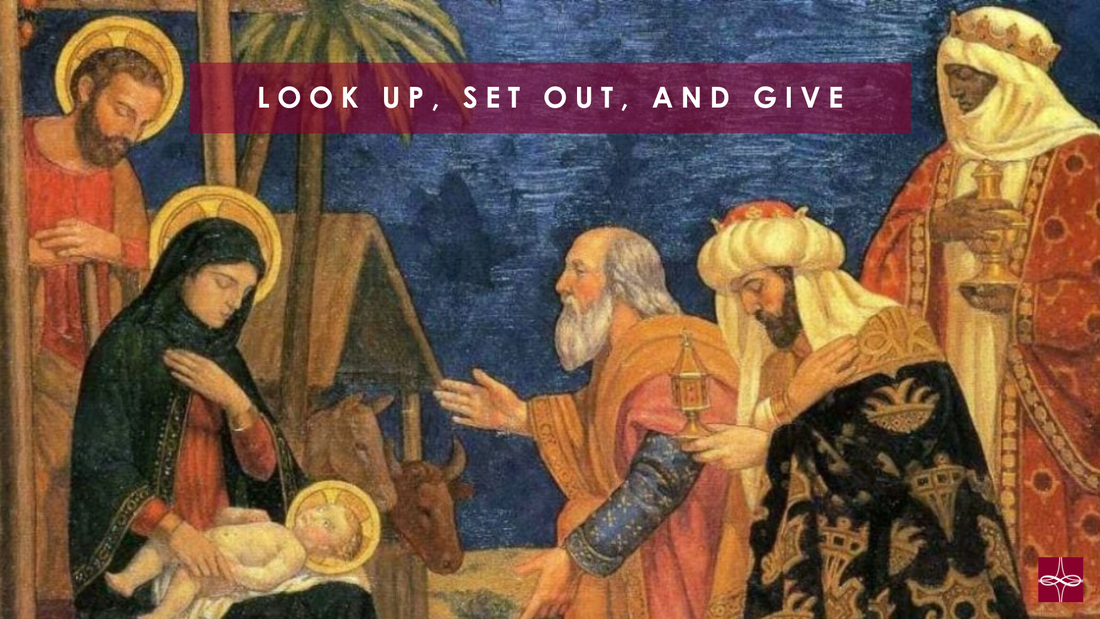

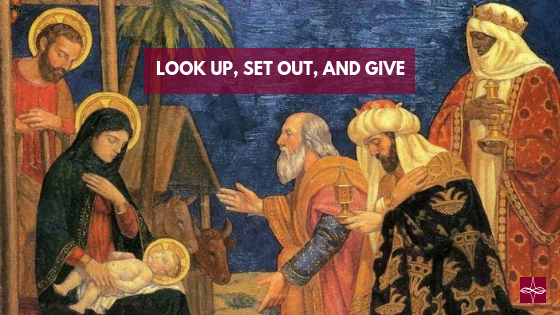

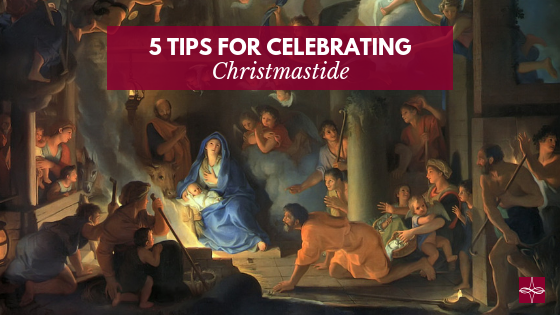



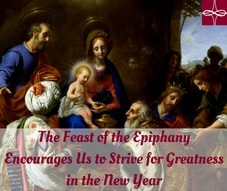

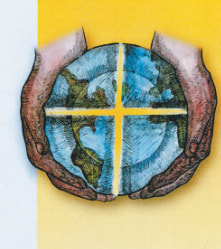
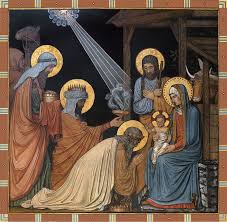
 RSS Feed
RSS Feed